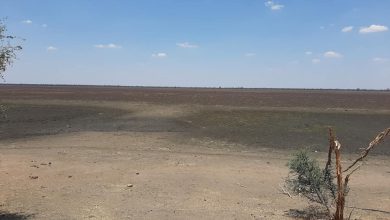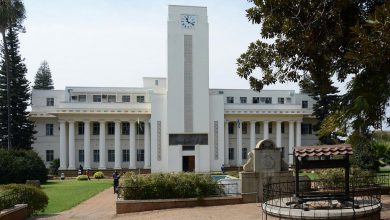Byo water woes to ease as council plans to recommission dams

The water crisis in Bulawayo is likely to ease as the Bulawayo City Council (BCC) is planning to bring back online three of the supply dams which had been decommissioned owing to low water levels.
The supply dams, all located in Matabeleland South, have received some inflows following the heavy rains experienced in the past few weeks.
The recommissioning of Umzingwane, Upper Ncema and Lower Ncema which now have a usable volume of 11 million cubic metres, will reduce the 144-hour water-shedding period.
Bulawayo’s non-restricted water consumption is 150 megalitres per day but BCC says currently it can only provide 120 megalitres per day, which is why shedding would continue as what is fed into the water system still does not match the total consumption.
BCC said there was another challenge with water delivery, as some of the valves that protected the water pumps developed design and manufacturing problems.
“The recommissioning strategy is of high priority to the city and various efforts are being made to ease the current water-shedding burden. I am aware of the considerable strain which is faced by Bulawayo residents due to water shedding. It is my council’s hope that the recent inflows while still low will assist in alleviating the stress faced by the residents,” said Bulawayo mayor, Councillor Solomon Mguni at a press conference held after a special council meeting on the city’s water situation, Monday.
The mayor said as part of the recommissioning strategy, BCC had proposed that the raw water from Umzingwane, Insiza, and Inyankuni be utilized to feed the new Flowserve raw water pumps and pipeline while Upper and Lower Ncema would feed the Ncema water treatment works for clear water pumping for the Tuli reservoir.
The Flowserve raw water pumps are part of the Bulawayo Water and Sewerage Services Improvement Project (BWSSIP), where six new Flowserve pumps were supplied and installed at the Ncema and Fernhill pump stations.
The new pumps were a replacement of the obsolete KSB pumps but Clr Mguni said a significant problem occurred during the onsite testing in the past two weeks that would affect the timeline to commission the Flowserve pumps.
“It had been our wish as a city to have the flowserve pumps fully functional before the onset of the rainy season so as to quickly ease the burden being faced by the residents. Four of the total of six non-return valves (NRVs) have failed due to design and manufacturing defects. The NRVs have an important function to protect the pumps; in that when a pump is switched off or when there is a power outage, the NRV prevents backflow from the water in the rising main. If unchecked, backflow causes the pump to spin in reverse which is potentially damaging for the pump,” he said.
BCC was then advised by the supervision consultants and contractor that the new flowserve pumps should not be operated with defective NRVs because of the risk of damaging the pump through reverse flow.
“The proposed permanent solution for this major asset in our water supply has been to replace all six non-return valves with better design and improved manufacturing. However, as NRVs of this diameter and pressure rating are not held as stock items, they will have to be manufactured. The manufacturing lead time is likely to be four to six months and this is obviously a timeline that BCC cannot accept,” Mguni said.
Until a permanent solution is implemented through the replacement of the NRVs, the mayor noted a temporary solution of reinforcing and strengthening the NRV has been tried.
“This was through the use of one of the KSB valves that were working so as to protect the three valves, however these were assessed and found no longer suitable because of wear and tear.
Due to challenges that came up during the testing of the Flowserve pumps the expected commissioning that had been scheduled to take place on December 23, 2020, has now been deferred until the teething problems have been ironed out. The contractor has been given a deadline of January 15, 2021, to come up with a temporal option while they work on a permanent solution,” he said.
City Engineer Simela Dube said water shedding would be eased progressively, should the council be able to rectify the second Sulzer pump from December 23, 2020 onwards.
“I think we can put almost 90 megalitres of raw water through the Sulzer pumps. The Flowserve can deliver an additional 90 megalitres per day, so between the Sulzer and Flowserve, we can source 120 megalitres in the treatment works assuming there is enough water in the dams. Hopefully, from December 24, 2020, going forward there will be a review in terms of what is existing in our dams obviously assuming we don’t have any interruption in pumping,” he said.






